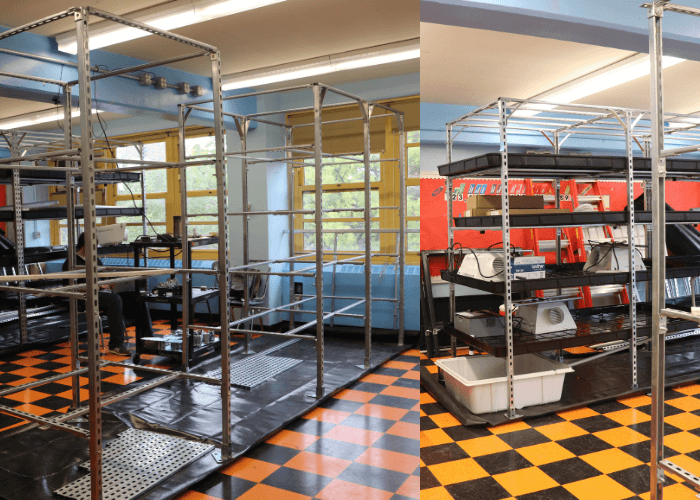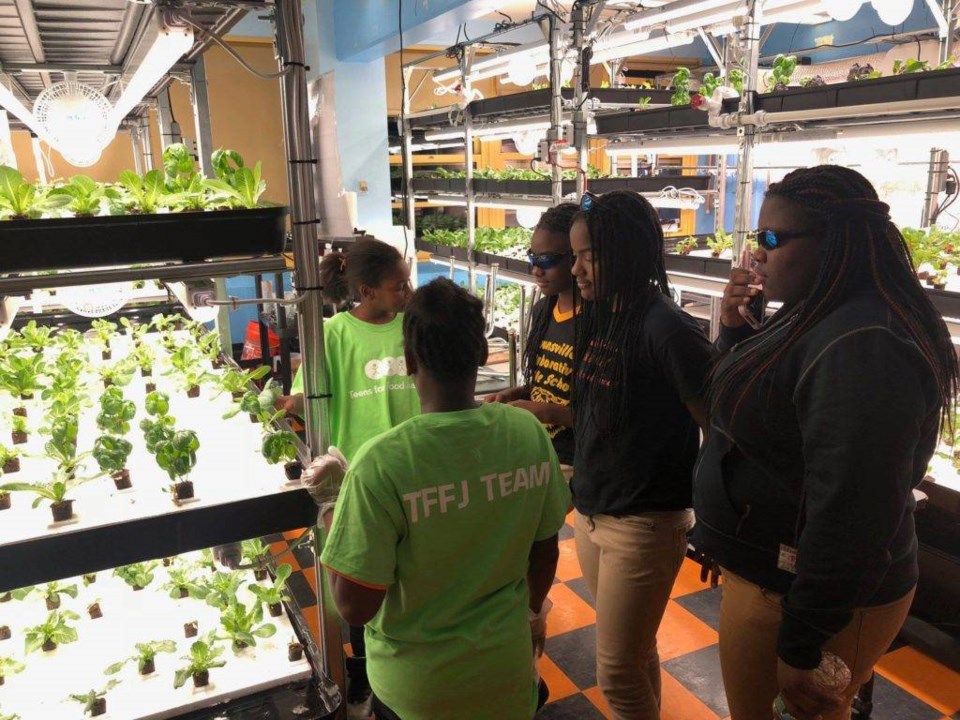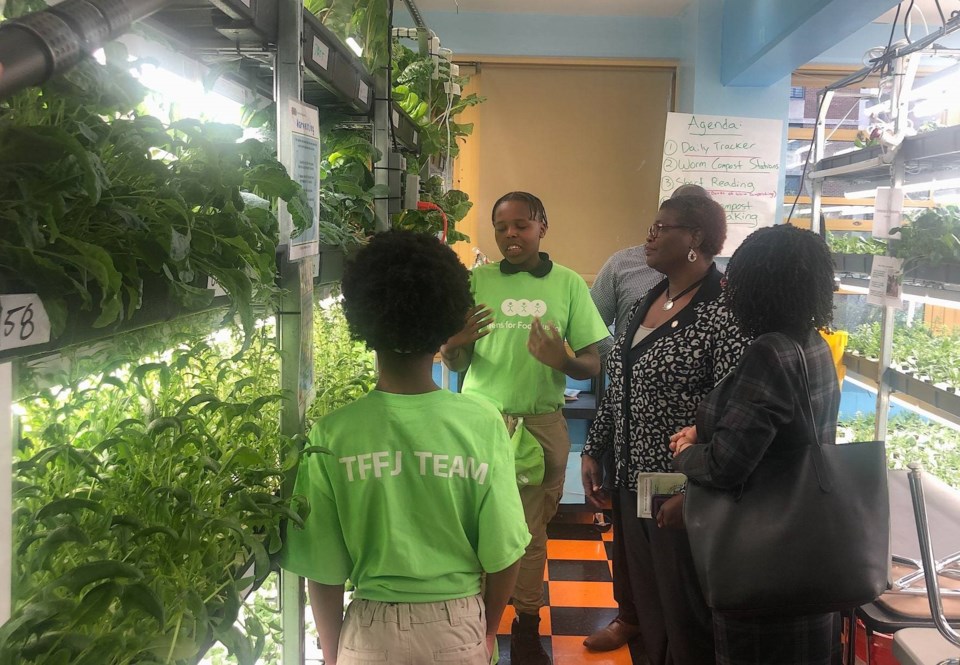Students at Brownsville Collaborative Middle School celebrated on Thursday the official launch of their hydroponic farm, a STEM (science, technology, engineering and math) program created in partnership with Teens for Food Justice, a nonprofit dedicated to ensuring that New Yorkers have access to healthy, affordable food through youth-led initiatives.
State Senator Roxanne Persaud and representatives of BMS Family Health Centers and Maimonides Medical Center, who supported the project, joined the students for a ceremonial ribbon-cutting.

The project began last fall when students converted a classroom to build the hydroponics units, a farming method that grows plants in mineral nutrient solutions instead of soil. The program gives students a unique, hands-on experience that allows them to be part of every aspect of the process, from designing and building the equipment, to choosing and maintaining the crops.
"The students love it," explained Gregory Jackson Jr., the school's principal. "Because there are no healthy options Brownsville, we are creating them."
Through hydroponics, students can grow produce such as tomatoes, herbs, peppers, lettuce, Swiss chard, basil, sage and watercress year-round. And once the produce is harvested, the students get to decide how to distribute it. Eventually, the farm is expected to yield 15,000 pounds of produce annually.

With the launch of the farm, Teens for Food Justice also started an apprenticeship program at BCMS, which teaches students about food justice, social entrepreneurship, nutrition and advocacy, empowering them as the next generation of change agents in their community. Not only are the students learning core scientific concepts by maintaining the farm, the initiative also helps promote healthy eating habits among them as well as their surrounding community.
So far, the farm is already growing nearly 1000 pounds of fresh food per month, and for now, it is being used for delicious healthy meals prepared in the school's cafeteria.




